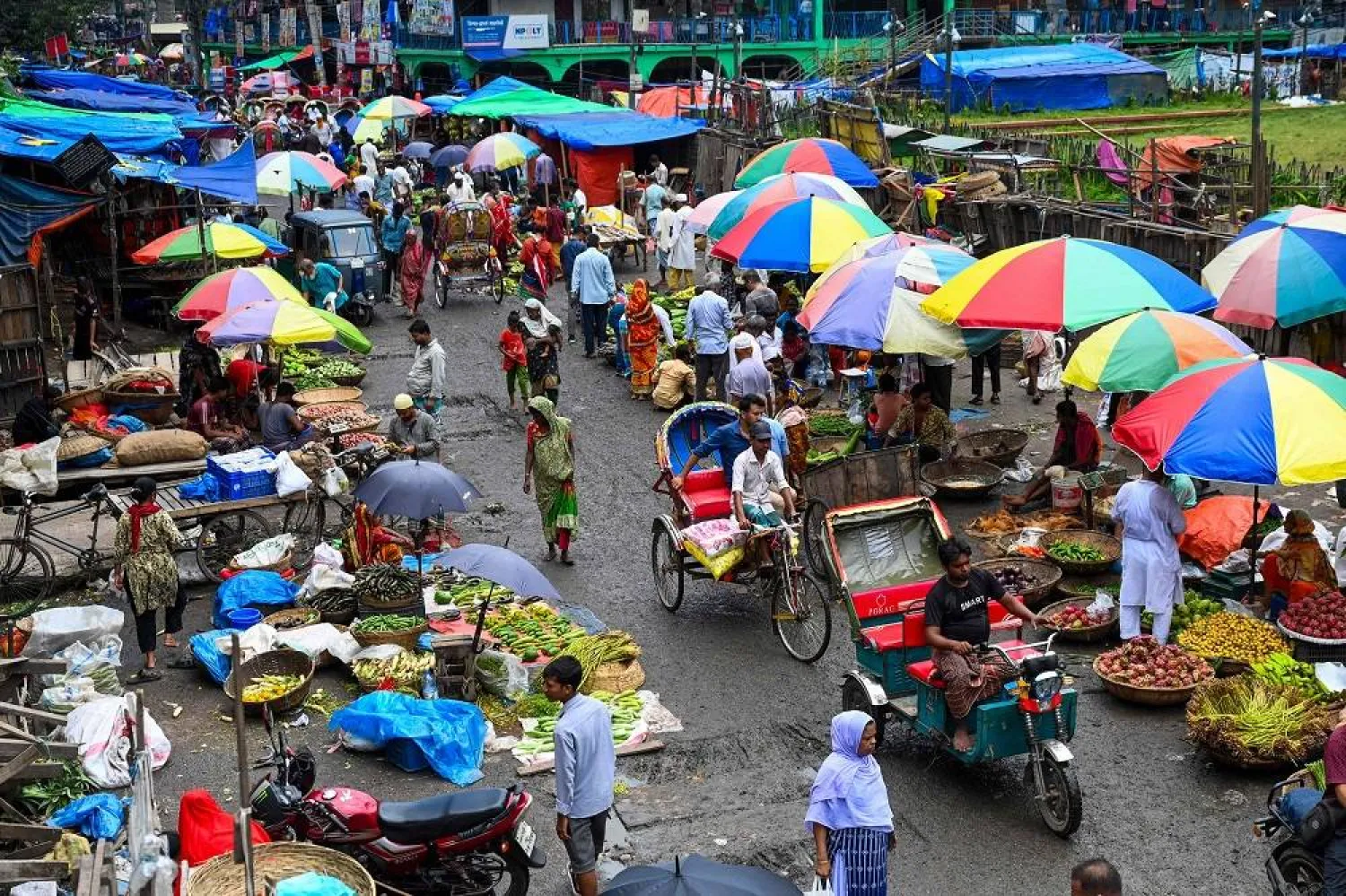Bangladesh further eased a nationwide curfew Thursday as students weighed the future of their protest campaign against civil service hiring rules that sparked days of deadly unrest last week.
Last week's violence killed at least 191 people including several police officers, according to an AFP count of victims reported by police and hospitals during some of the worst unrest of Prime Minister Sheikh Hasina's tenure.
Thousands of troops are still patrolling cities and a nationwide internet shutdown remains largely in effect, but clashes have subsided since protest leaders announced a temporary halt to new demonstrations.
Hasina's government ordered another relaxation to the curfew it imposed at the height of the unrest, allowing free movement for seven hours between 10:00 am and 5:00 pm.
Streets in the capital Dhaka, a sprawling megacity of 20 million people, were choked with commuter traffic in the morning, days after ferocious clashes between police and protesters had left them almost deserted.
Banks, government offices and the country's economically vital garment factories had already reopened on Wednesday after all being shuttered last week.
Student leaders were set to meet later Thursday to decide whether or not to again extend their protest moratorium, which is due to expire on Friday.
Students Against Discrimination, the group responsible for organizing this month's rallies, said it expected a number of concessions from the government.
"We demand an apology from Prime Minister Sheikh Hasina to the nation for the mass murder of students," Asif Mahmud, one of the group's coordinators, told AFP.
"We also want the sacking of the home minister and education minister."
Mahmud added that the estimated toll in the unrest was understated, with his group working on its own list of confirmed deaths.
Police have arrested at least 2,500 people since the violence began last week, according to an AFP tally.
Protests began after the June reintroduction of a scheme reserving more than half of government jobs for certain candidates, including nearly a third for descendants of veterans from Bangladesh's independence war.
With around 18 million young people in Bangladesh out of work, according to government figures, the move deeply upset graduates facing an acute jobs crisis.
Critics say the quota is used to stack public jobs with loyalists to Hasina's Awami League.
The Supreme Court cut the number of reserved jobs on Sunday but fell short of protesters' demands to scrap the quotas entirely.
Hasina, 76, has ruled the country since 2009 and won her fourth consecutive election in January after a vote without genuine opposition.
Her government is also accused by rights groups of misusing state institutions to entrench its hold on power and stamp out dissent, including the extrajudicial killing of opposition activists.









